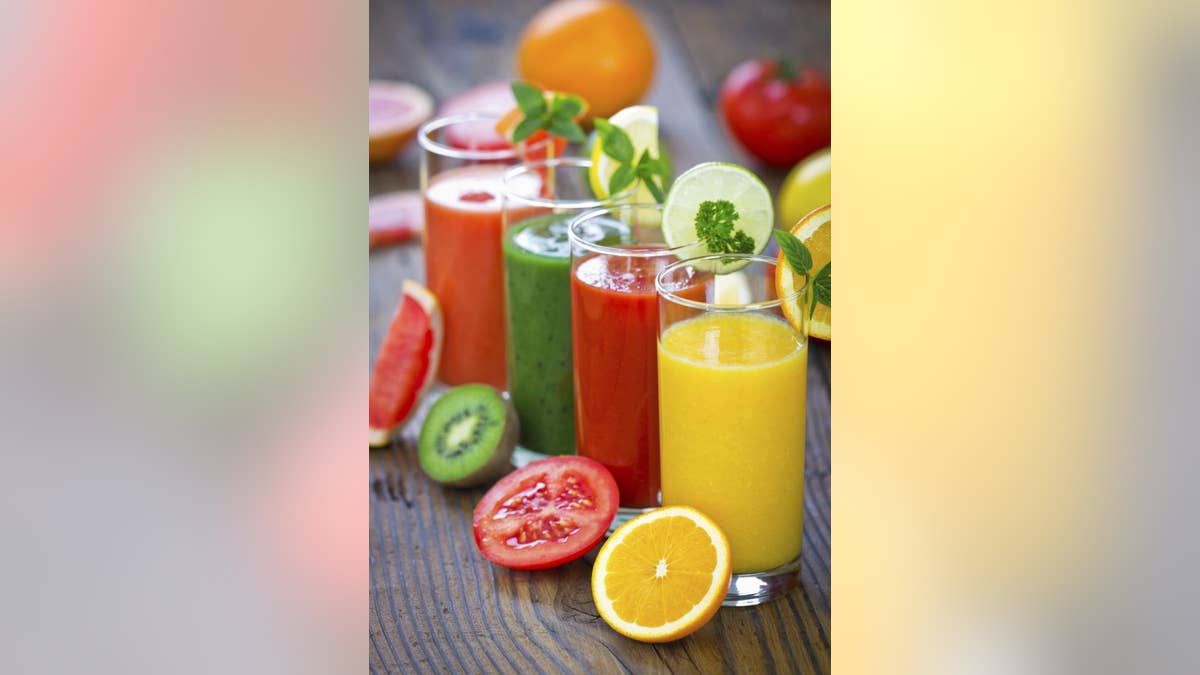
Svelte stars Gwyneth Paltrow, Salma Hayek, and Nicole Richie credit drinking juice for looking and feeling good on the red carpet.
And lately, it seems like more celebrities are admitting to juicing to keep their health (and weight) in check. But should we be investing right along with them or this health fad just pulp fiction?
According to nutritionist Elizabeth Ward, enjoying a tasty mix of fresh fruits and veggies is an easy, convenient way to kick off a healthier lifestyle.
“The greatest benefit is that juicing offers a convenient and delicious way to include fruits and vegetables into your eating plan,” she explains. “Many adults and children fall far short of the minimum suggested daily produce servings, so the ‘juicing habit’ is perfect for them."
In 2010, the CDC reported that nearly 33 percent of adults consumed fruit two or more times per day and only 26 percent ate vegetables at least three times a day. However, some experts insist that juicing can help fill those gaps.
Dr. Michael Wald, director of nutrition at Integrated Medicine in New York, says juicing is a celebrity trend we should take note of.
“It’s easy to drink a delicious glass of healthy juice,” says Wald. “In a single drink, one could consume the entire days’ supply of fruits and vegetables. Enzymes found in vegetables also help the body digest food, have anti-inflammatory properties and even anti-cancer properties."
However, there are several drawbacks to transforming your produce into juice. For starters, there’s the cost. No mere blender will do (unless you’re whipping up smoothies). A juicer or a “health juice extractor” can cost at least $50. That’s not including the extra cost for your produce of choice. You could buy ready to drink juice at select retailers, but, depending on the brand, it could cost nearly $10 a bottle. Many online services could deliver right to your door, but the right package, whether to promote glowing skin, help manage weight, or simply to build immunity against the common cold, can also be costly.
Experts also point out that celebrities are most likely working with nutritionists or personal trainers to help them through the juicing process without depriving themselves of the necessary nutrients needed per day.
“If one only juices for prolong periods, at the exclusion of healthy fats and proteins, nutritional imbalances will result,” says Wald.
On the other hand, it is possible to juice too much, resulting in weight gain.
“There’s the risk of overdoing it, but that’s true of any food with calories,” adds Ward.
Shauna Martin, founder of Austin-based juicing company Daily Greens, also warns that reading the labels of juice bottles is crucial.
“Stay clear of any added sugars,” she says. “If you want a sweeter drink, find recipes or products with sweet fruit in it to balance out the flavor of the greens. When making juices yourself, easy additions are lemon or apple.”
“Also, you want to see vitamins in the nutritional panel of the bottle, but you don’t want to see them in the ingredients listing,” she adds. “This means they have been added back after the juice has been made, which implies that the nutrients were, in some way, removed from the fruits or veggies in the process.”
How can you juice properly? If you’re looking to get a red carpet-ready body, you’ll need to consult a nutritionist first to help you create a meal plan made specifically for your needs. And it’s advised to consult a physician to determine how many calories you need each day to lose weight.
But if you’re merely looking to incorporate a healthy lifestyle, starting is a lot easier than you think.
“Juicing is not an all or nothing lifestyle change,” explains Chelsea Silverman, expert and executive vice president of Juiceateria.
“Juicing is all about incorporation. Sip one fresh juice a day. Just hit your local juice bar, natural foods store, or buy a juicer.”
